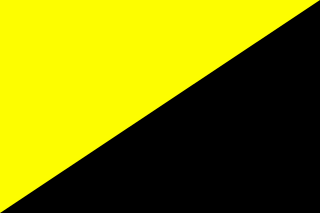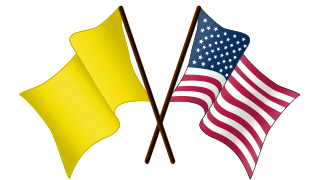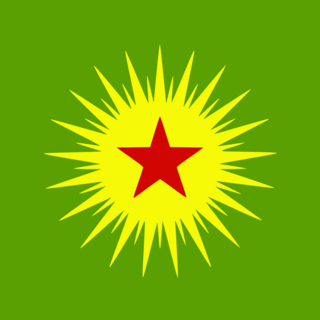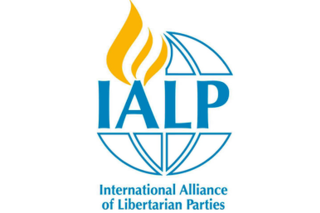
Anarcho-capitalism is an anti-statist, libertarian political philosophy and economic theory that seeks to abolish centralized states in favor of stateless societies with systems of private property enforced by private agencies, based on concepts such as the non-aggression principle, free markets and self-ownership. In the absence of statute, anarcho-capitalists hold that society tends to contractually self-regulate and civilize through participation in the free market, which they describe as a voluntary society involving the voluntary exchange of goods and services. In a theoretical anarcho-capitalist society a system of private property would still exist, and would be enforced by private defense agencies and/or insurance companies that were selected by property owners, whose ownership rights or claims would be enforced by private defence agencies and/or insurance companies. These agencies or companies would operate competitively in a market and fulfill the roles of courts and the police. Some anarcho-capitalist authors have argued that voluntary slavery is compatible with anarcho-capitalist ideals.

The Libertarian Party (LP) is a neoclassical liberal political party in the United States that promotes civil liberties, non-interventionism, laissez-faire capitalism, and limiting the size and scope of government. The party was conceived in August 1971 at meetings in the home of David F. Nolan in Westminster, Colorado, and was officially formed on December 11, 1971, in Colorado Springs. The organizers of the party drew inspiration from the works and ideas of the prominent Austrian school economist Murray Rothbard. The founding of the party was prompted in part due to concerns about the Nixon administration, the Vietnam War, conscription, and the introduction of fiat money.

The Quebec Liberal Party is a provincial political party in Quebec. It has been independent of the federal Liberal Party of Canada since 1955. The QLP has always been associated with the colour red; each of their main opponents in different eras have been generally associated with the colour blue.

The Open Flemish Liberals and Democrats is a Flemish liberal political party in Belgium. The party has been described as centre-right and has smaller factions within the party that have conservative liberal and social liberal views. The party is a member of the Liberal Group, Renew Europe, and Liberal International.
The Liberal Reformist Party was a liberal political party active in Wallonia and Brussels in Belgium. The PRL grew out of the Francophone part of the unitary liberal Party for Freedom and Progress (PVV-PLP) in 1971 and merged into the Reformist Movement (RM) in 2002.

Geolibertarianism is a political and economic ideology that integrates libertarianism with Georgism. It favors a taxation system based on income derived from land and natural resources instead of on labor, coupled with a minimalist model of government, as in libertarianism. The term was coined by the late economist Fred Foldvary in 1981.
The Libertarian Party of Canada is a federal political party in Canada founded in 1973. The party subscribes to libertarian and classical liberal tenets; its stated mission is to reduce the size, scope, and cost of government. Party policies include ending drug prohibition, ending government censorship, lowering taxes, protecting gun rights, ending laws criminalising the voluntary transfer of money for sex acts between consenting adults, and non-interventionism.
The Ontario Libertarian Party is a minor libertarian party in the Canadian province of Ontario. Founded in 1975 by Bruce Evoy and Vince Miller, the party was inspired by the 1972 formation of the United States Libertarian Party. The party is guided by a charter of principles, and its own Ontario charter of rights and freedoms.

The Socialist Party is a social democratic French-speaking political party in Belgium. As of the 2024 elections, it is the fourth largest party in the Belgian Chamber of Representatives and the second largest Francophone party. The party is led by Paul Magnette. The party supplies the Minister-president of the French Community, and the Brussels-Capital Region. In the German-speaking community, the party is known as the Sozialistische Partei (SP).

The Workers' Party of Belgium is a Marxist and socialist political party in Belgium. It is the only Belgian party represented in parliament that is a fully national party, representing both Flanders and Wallonia. Having historically been a small party, the PTB-PVDA has gained momentum since the 2010s, continuously scoring better at the elections, particularly in Wallonia and working-class communities in Brussels.
The Party for Freedom and Progress was a liberal political party in Belgium which existed from 1961 until 1992. The party was the successor of the Liberal Party, which had roots dating back to 1846. It was succeeded in the Flemish Community of Belgium by the Flemish Liberals and Democrats (VLD) and in the French Community by the Liberal Reformist Party, Parti des Réformes et des Libertés de Wallonie and the current-day Reformist Movement. In the German-speaking Community, it continued to exist as the Party for Freedom and Progress up to 2023.
This article gives information on liberalism worldwide. It is an overview of parties that adhere to some form of liberalism and is therefore a list of liberal parties around the world.
Libertarianism, or neoclassical liberalism, is a political philosophy that places a strong emphasis on the value of liberty. Libertarians advocate for the expansion of individual autonomy and political freedom, emphasizing the principles of equality before the law and the protection of civil rights, including the rights to freedom of association, freedom of speech, freedom of thought and freedom of choice. Libertarians often oppose authority, state power, warfare, militarism and nationalism, but some libertarians diverge on the scope of their opposition to existing economic and political systems. Various schools of libertarian thought offer a range of views regarding the legitimate functions of state and private power. Different categorizations have been used to distinguish various forms of Libertarianism. Scholars have identified distinct libertarian perspectives on the nature of property and capital, typically delineating them along left–right or socialist–capitalist axes. The various schools of libertarian thought have also been shaped by liberal ideas.
Laws regulating nonprofit organizations, nonprofit corporations, non-governmental organizations, and voluntary associations vary in different jurisdictions. They all play a critical role in addressing social, economic, and environmental issues. These organizations operate under specific legal frameworks that are regulated by the respective jurisdictions in which they operate.

Federal elections were held in Belgium on 10 June 2007. Voters went to the polls in order to elect new members for the Chamber of Representatives and Senate.

Pirate Parties International (PPI) is an international non-profit and non-governmental organization with headquarters in Brussels, Belgium. Formed in 2010, it serves as a worldwide organization for Pirate Parties, currently representing 39 members from 36 countries across Europe, the Americas, Asia, Africa and Australasia. The Pirate Parties are political incarnations of the freedom of expression movement, trying to achieve their goals by the means of the established political system rather than just through activism. In 2017, PPI had been granted special consultative status to the United Nations Economic and Social Council.

The People's Party, abbreviated to PP, was a political party in Belgium. Primarily a French-speaking party, it considered itself to be to the right of the Reformist Movement, the main centre-right party in Francophone Belgium. It was often considered as a right-wing populist party. From 2016 onwards, it was considered as far-right by the Centre de recherche et d'information socio-politiques.

Democratic confederalism, also known as Kurdish communalism or Apoism, is a political concept theorized by Kurdistan Workers Party (PKK) leader Abdullah Öcalan about a system of democratic self-organization with the features of a confederation based on the principles of autonomy, direct democracy, political ecology, feminism, multiculturalism, self-defense, self-governance and elements of a cooperative economy. Influenced by social ecology, libertarian municipalism, Middle Eastern history and general state theory, Öcalan presents the concept as a political solution to Kurdish national aspirations, as well as other fundamental problems in countries in the region deeply rooted in class society, and as a route to freedom and democratization for people around the world.

The International Alliance of Libertarian Parties (IALP) is an alliance of libertarian political parties around the world. Its mission is to promote libertarian politics internationally.










